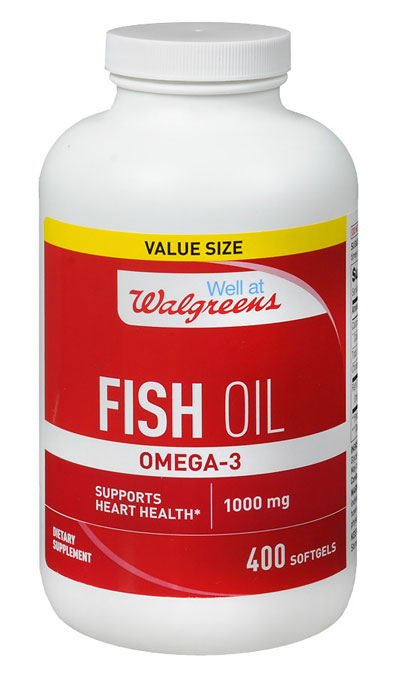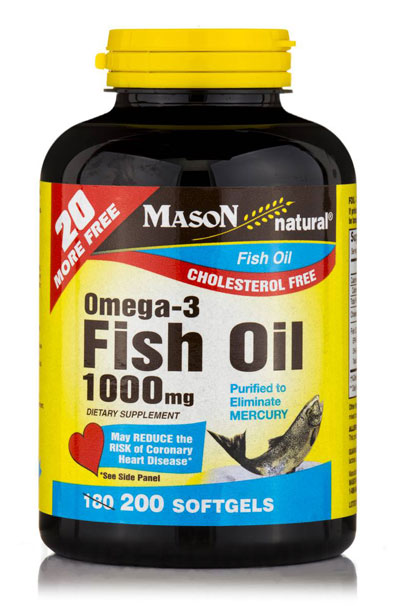FDA Holds Line On Omega-3 Claims, But Gives Enforcement Discretion For More
Executive Summary
Agency says "some credible evidence" suggests intake of EPA and DHA "may reduce the risk of hypertension by lowering blood pressure, this evidence is inconclusive and highly inconsistent" and does not support actual approval of a qualified health claim.
The US Food and Drug Administration will exercise enforcement discretion for five additional qualified health claims for blood pressure and coronary heart disease risk reduction to be used with omega-3 supplements.
The agency announced the decision on 19 June in its response to a citizen petition by the Global Organization for EPA and DHA Omega-3, which sought unqualified health claims for eicosapentaenoic and docosahexaenoic fatty acids in food or supplements.
(This article updates and expands on information about this topic that HBW Insight published earlier as a breaking news alert.)
The Office of Nutrition and Food Labeling in the FDA Center for Food Safety and Applied Nutrition stated in the response to GOED that while "some credible evidence" suggests the combined intake of EPA and DHA fatty acids in food or supplements "may reduce the risk of hypertension by lowering blood pressure, this evidence is inconclusive and highly inconsistent" and does not support actual approval of a qualified health claim (QHC).
Additionally, the decision shows the agency is not aligned with the Institute of Medicine's 2010 recommendation on using biomarkers to support dietary supplement claims.
GOED petitioned the FDA to allow unqualified health claims for blood pressure and coronary heart disease risk reduction for omega-3 supplements based on a meta-analysis of 70 studies finding overall that EPA and DHA statistically reduced systolic and diastolic blood pressure. (Also see "Omega-3 Petition Seeks Unqualified Blood Pressure, CHD Claims" - HBW Insight, 3 Feb, 2014.)
GOED's Suggested Language Resonates
CFSAN's ONFL, while not approving as QHCs the statements GOED included in its petition as health claims, incorporated some of the trade group's suggested language in the five claims it is adding to the single claim for which the agency has exercised enforcement discretion since 2004. ONFL's letter to GOED also discussed additional criteria for enforcement discretion for omega-3 supplements using the QHCs (see box below).
The QHC for omega-3 containing food and supplements that the FDA is allowing under enforcement discretion based on GOED's petition are:
-
"Consuming EPA and DHA combined may help lower blood pressure in the general population and reduce the risk of hypertension. However, FDA has concluded that the evidence is inconsistent and inconclusive. One serving of [name of the food or dietary supplement] provides [ ] gram(s) of EPA and DHA";
-
"Consuming EPA and DHA combined may reduce blood pressure and reduce the risk of hypertension, a risk factor for CHD (coronary heart disease). However, FDA has concluded that the evidence is inconsistent and inconclusive. One serving of [name of the food or dietary supplement] provides [ ] gram(s) of EPA and DHA";
-
"Consuming EPA and DHA combined may reduce the risk of CHD (coronary heart disease) by lowering blood pressure. However, FDA has concluded that the evidence is inconsistent and inconclusive. One serving of [name of the food or dietary supplement] provides [ ] gram(s) of EPA and DHA";
-
(FDA included this statement as a variation of the previous claim) "Consuming EPA and DHA combined may reduce the risk of CHD (coronary heart disease) by reducing the risk of hypertension. However, FDA has concluded that the evidence is inconsistent and inconclusive. One serving of [name of the food or dietary supplement] provides [ ] gram(s) of EPA and DHA";
-
"Research shows that consuming EPA and DHA combined may be beneficial for moderating blood pressure, a risk factor for CHD (coronary heart disease). However, FDA has concluded that the evidence is inconsistent and inconclusive. One serving of [name of the food or dietary supplement] provides [ ] gram(s) of EPA and DHA."
The qualified health claim for which the FDA has exercised enforcement discretion since 2004 is: “Supportive but not conclusive research shows that consumption of EPA and DHA omega-3 fatty acids may reduce the risk of coronary heart disease” under certain circumstances.
'Emerging' Evidence Not Enough
Health claims, which characterize the relationship between a substance and a disease or health-related condition, have a high bar for approval under FDA regulations. The process requires an extensive review of scientific literature and typically the submission of a citizen petition before authorization by FDA.
QHCs offer an alternative for describing on labels and in advertising benefits provided by vitamin, mineral or supplement ingredients. Those claims signify “emerging evidence” for a relationship with reduced risk of disease or health condition, but “the evidence is not well enough established to meet the significant scientific agreement standard required by FDA to issue an authorizing regulation” for an unqualified health claim, the agency says.
'Enforcement Discretion Factors Specific' To EPA and DHA QHCs
Omega-3 supplements using the QHCs the FDA is allowing under enforcement discretion must comply with these criteria CFSAN stated in its letter to GOED:
-
Level of the ingredients must be sufficiently high and in an appropriate form;
-
Minimum amount per serving of 0.8 g EPA and DHA (combined total) for a conventional food or dietary supplement;
-
Not provide more than 5 g/day of EPA and DHA combined when used according to labeling to ensure that consumption of high-potency EPA and DHA supplements based on the presence of QHCs in product labeling does not increase potential for adverse effects;
-
Meet the "extra lean" criterion for cholesterol (95 mg of cholesterol per reference amount customarily consumed [RACC]); Meet the disqualifying nutrient level for fat per 50 g for foods with a small RACC (30 g or less or 2 tablespoons or less;
-
Food products must meet 10% minimum content requirement for Daily Value for vitamin A, vitamin C, iron, calcium, protein, or dietary fiber per RACC; 10% minimum nutrient content requirement does not apply to supplements.
Moving from a QHC to a health claim involves narrowing the focus of evidence that supports the benefit of a nutritional ingredient, a focus that the FDA decided GOED didn't achieve.
"The idea is that the evidence [in GOED's petition] didn't rise to the level of significant scientific agreement, which has never been fully defined in any case," said food and drug attorney Frederick Stearns.
Stearns, a partner at Keller and Heckman LLP in Washington, added that FDA's expectations aren't clear for showing significant scientific agreement. "What exactly does that mean? It's a pretty high standard obviously," he said.
Daniel Fabricant, president and CEO at the Natural Products Association, also sees showing significant scientific agreement is a moving target. "Where is the preponderance of evidence that supports switching the qualified health claims?" he said.
The FDA requires that QHCs are accompanied by a disclaimer or other qualifying language that accurately describes the level of scientific evidence supporting the claim.
Although GOED suggested unqualified health claims, ONFL Director Douglas Balentine notes in the agency's response to the trade group that its petition included claims that "lack qualifying language disclosing the limited scientific evidence supporting the claim."
In addition to language about the level of science supporting a claim, CFSAN determined the claims should include "information on the amount of EPA and DHA in a product is necessary to enable consumers to understand the claim and its significance in the context of their daily diet," as required by FDA nutrition labeling regulations, Balentine said.
Biomarkers Not Evidence For Claims
The CFSAN office's discussion of model claims and corresponding studies that GOED included in its petition referenced the agency's stance on not using biomarkers to support supplement claims. (Also see "Omega-3 Petition Outcome Will Reveal FDA Biomarker Stance" - Pink Sheet, 3 Feb, 2014.)
It said two of the proposed claims – "EPA and DHA help lower blood pressure in the general population," and "EPA and DHA reduce the risk of coronary heart disease" – referenced possible blood pressure lowering effects of combined intake of EPA and DHA without specifying the disease or health-related condition that would be the subject of the claim.
"Blood pressure is neither a disease nor a health-related condition; rather, it is a biomarker that is a diagnostic criterion for certain diseases and health-related conditions, such as hypertension, CHD, and pre-hypertension," according to the FDA's response.
To meet the definition of a health claim, GOED's proposed claims that mention only blood pressure-lowering must be modified to describe the relationship between combined intake of EPA and DHA and reducing the risk of hypertension or CHD.
The GOED petition presented the agency with its first consideration of biomarkers as claims evidence following the Institute of Medicine's 2010 a report recommending a framework for assessing biomarkers for food and supplement health claims. An IOM expert panel proposed ensuring biomarkers can be measured adequately, that they are appropriate for their stated purpose and that they are linked to a clinical outcome. (Also see "IOM Proposal Could Open Door For Biomarkers In Supplement Research" - Pink Sheet, 17 May, 2010.)
Another claim GOED proposed – "EPA and DHA reduce blood pressure, a risk factor of coronary heart disease," or "research shows that EPA and DHA may be beneficial for moderating blood press, a risk factor for coronary heart disease" – discusses EPA and DHA and reduced risk of CHD but was backed by evidence for lowering blood pressure and reduced risk of hypertension, the CFSAN office determined. "Lowering blood pressure is one of many mechanisms for lowering the risk of CHD," it said.

The agency didn't evaluate the totality of evidence for effects of combined EPA and DHA intake on other surrogate endpoints for CHD such as total cholesterol, LDL cholesterol or other mechanisms of CHD risk. It instead evaluated evidence for effects of combined EPA and DHA intake and reducing the risk of hypertension and CHD by lowering blood pressure.
To make the proposed claim complete and clear to consumers, the agency modified it to clarify that the mechanism for the possible reduction in CHD risk is lowering blood pressure, or by saying that consuming EPA and DHA in combination may reduce the risk of CHD by reducing the risk of hypertension.
CFSAN determined that GOED's final proposed claim – "Convincing scientific evidence indicates that EPA and DHA help lower blood pressure in the general population, with comparable reductions to those achieved with other diet and lifestyle interventions" – overstated and mischaracterized the strength of evidence for a relationship between EPA and DHA intake and reduced risk of hypertension through blood pressure reduction.
"Only a minority of the studies (36 out of 104)" GOED submitted showed a beneficial effect on blood pressure and results were inconsistent among studies across the entire range of study durations and levels of combined EPA and DHA intake, according to the agency's response.
"The evidence suggesting that intake of EPA and DHA in combination from conventional foods and dietary supplements may reduce the risk of hypertension by lowering blood pressure is inconclusive and highly inconsistent," it said.
Additionally, the proposed claim’s assertion that EPA and DHA produce “comparable reductions [in blood pressure] to those achieved with other diet and lifestyle interventions” is not supported by any credible scientific evidence, the response states.

